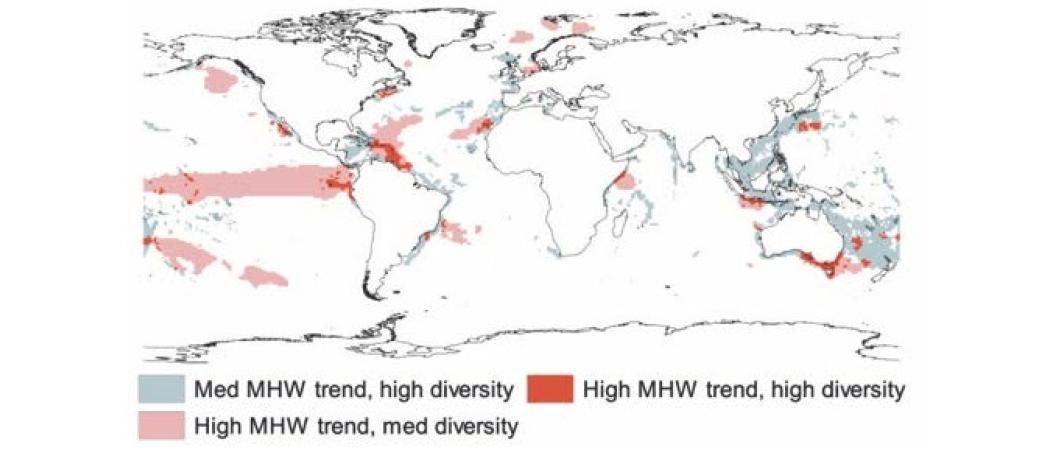
Impacts of MHWs on habitat-forming species.
BSC participates in a paper, published in Nature Climate Change, which is the first to quantify and contrast the magnitude and impacts of several prominent marine heatwaves using the same methods and metrics.
Extreme weather events occur in the oceans as well as the atmosphere. Marine heatwaves – periods of anomalously high temperatures – are increasing in frequency, with 54% more heatwave days per year from 1987–2016, than from 1925–1954, yet their impacts on species and ecosystems are poorly known.
A paper published online this week in Nature Climate Change is the first to quantify and contrast the magnitude and impacts of several prominent marine heatwaves using the same methods and metrics. In doing so, the researchers show that marine heatwaves have negative effects on a broad range of marine organisms, with major socioeconomic and political ramifications.
The study, led by Dr Dan Smale of the Marine Biological Association (UK) and involving scientists from 7 different countries representing 19 different institutes, found that marine heatwaves vary in their physical manifestations, yet all affect key species and alter ecosystem structure and functioning.
BSC researcher Markus Donat, Climate Prediction group coleader, participated in this research and states: "While our oceans, in particular the marine ecosystems, are exposed to a number of threats such as pollution, overfishing and climate change, this study robustly demonstrates the detrimental effects that periods of anomalously high ocean temperatures can have on marine ecosystems around the globe. This link between marine heatwaves and threats to marine ecosystems is of particular concern as ocean temperatures are warming globally as a consequence of human-caused climate change, and the warming of oceans is associated with marine heatwaves occurring more frequently and with higher intensity."
The research team used the existing MHW framework to quantify trends and attributes of MHWs across all ocean basins, and examined their biological impacts from species to ecosystems. They found that multiple regions within the Pacific, Atlantic, and Indian Oceans are particularly vulnerable to MHW intensification, due to the co-existence of high levels of biodiversity, a prevalence of species found at their thermal limit, or concurrent non-climate human impacts. Although the MHWs varied considerably, all were harmful across a range of biological processes and organisms, including critical species like corals, seagrasses and kelps.
Dr Smale said that extreme temperatures experienced during marine heatwaves can have adverse effects on marine organisms, leading to widespread mortality, species range shifts and changes to entire ecosystems and ecological processes.
“The major concern is that the oceans have warmed significantly as a consequence of manmade climate change, so that marine heatwaves have become more frequent and will likely intensify over the coming decades. Just as atmospheric heatwaves can destroy crops, forests and animal populations, marine heatwaves can devastate ocean ecosystems”.
The authors conclude that climate change will continue to increase the frequency of marine heatwaves and the associated impacts on marine biology could have broad reaching effects on ecosystems and the services they provide.
Reference: Marine heatwaves threaten global biodiversity and the provision of ecosystem service DOI: 10.1038/s41558-019-0412-1
This release was first published 5 March 2019 by the Barcelona Supercomputing Center.





 A unique international forum for public research organisations and companies to connect their external engagement with strategic interests around their R&D system.
A unique international forum for public research organisations and companies to connect their external engagement with strategic interests around their R&D system.